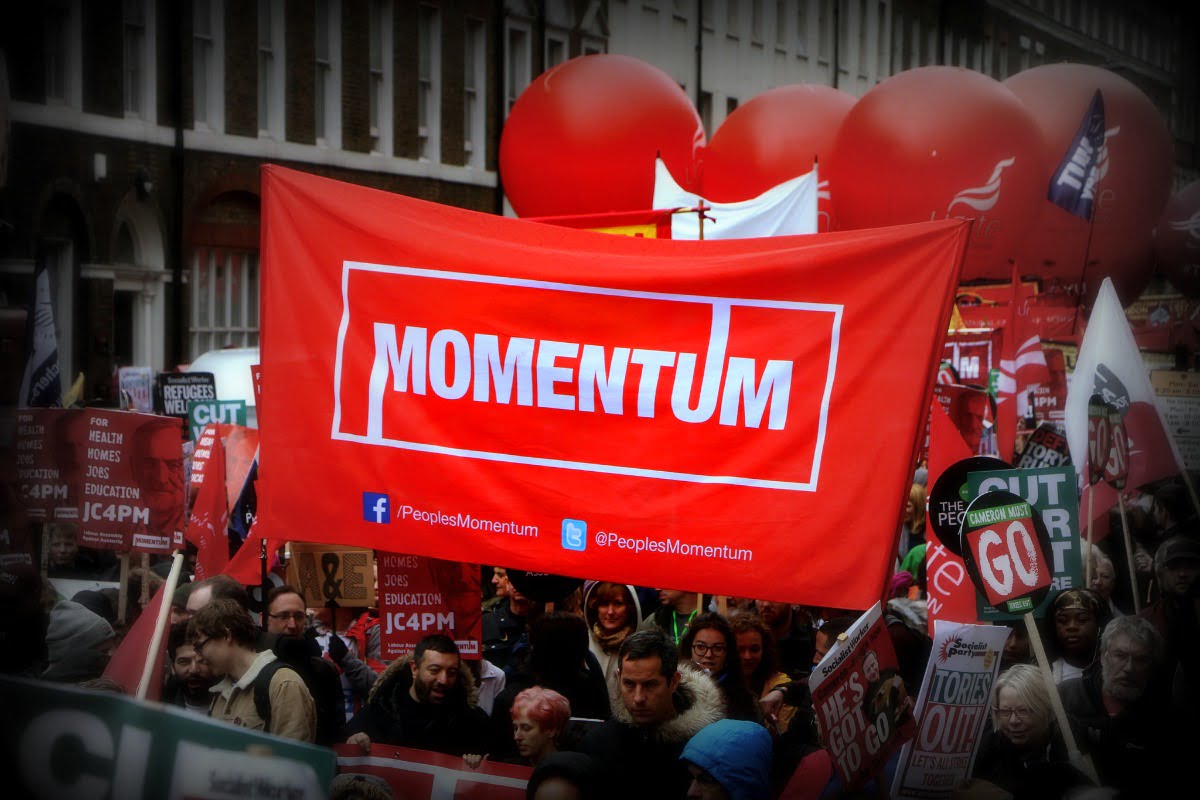On Sunday 5th June, Momentum Youth and Students held its founding conference. The mood was very positive thanks to the fact that there was a real sense of the tide having turned. Socialism is now back on the agenda and this is enthusing large swathes of young people who are new to politics.
On Sunday 5th June, Momentum Youth and Students held its founding conference. The mood was very positive thanks in part to the large attendance of almost 200 young people, but mainly due to the fact that there was a real sense of the tide having turned. Socialism is now back on the agenda and this is enthusing large swathes of young people who are new to politics.
The day was split up into a number of caucuses, workshops and talks, with supporters of Socialist Appeal and the Marxist Student Federation raising Marxist ideas throughout, which received a good echo. The Marxists pointed out that the Labour Party should build upon the success of Jeremy Corbyn’s leadership by appealing to a broad section of the working class and pointed out a number of ways this could be achieved. It was stressed, for example, that Momentum should offer unequivocal support and bold leadership to workers in struggle by calling on the TUC and the Labour Party to organise a 24-hour general strike as part of a campaign to bring down the Tory government and force new elections. This demand has a dual purpose. Marxists think strikes are important as more than merely a tool to achieve the immediate demands of that particular strike – although though kicking the Party of the rich out of government would be hugely important in itself. Strikes also have a transformative effect on the participants, showing the huge power that is held in the hands of the working class.
The conference represented a huge step forward, with many of the speakers, including Rebecca Long-Bailey MP, proudly declaring themselves socialist, pointing out the need to defend Jeremy Corbyn and to fight for anti-austerity politics. Nevertheless, it is necessary to be clear about what socialism really means and where austerity comes from. For example, Long-Bailey, in line with the approach of the Labour Party leadership as a whole, declared the cuts and austerity to be ‘ideological’, which seems to imply that the only reason they are taking place is because the Tories are nasty people. Of course, many of the Tories are certainly nasty people, but austerity is more or less a global trend at present, regardless of whether “Left” or Right governments are in power.
It must clearly be explained that austerity is a product of the global crisis of capitalism. The economic crisis of 2008 has to be paid for by either the working class or the capitalist class. Without mobilising the working class to unify and take power off the capitalist class, the capitalists will always be more powerful and use all manner of trickery to avoid paying for this crisis. This is seen time and time again. For example, the French government is in crisis at the moment. Despite coming to power on an anti-austerity programme declaring that higher taxes would be charged on the rich to pay for some services, the government ended up imposing austerity all the same. This is because Keynesian policies of tax and spend do not fundamentally alter where in society the power lies. This is hardly surprising given that the man who gave his name to this set of ideas once declared that the ‘class war’ would find him ‘on the side of the educated bourgeoisie’.
It is for these reasons that Marxists at the conference argued for a radical programme, which challenges the capitalist system. This should include a campaign for a new “Clause IV” in the Party constitution, which commits the Party to nationalising the banks and the biggest businesses without compensation and under the democratic control of the working class, as part of a socialist plan of production.
The conference voted on a founding constitution, which set out what Momentum Youth and Students is, who can be a member, how it makes decisions, how the national committee is constituted and how it is represented in Momentum as a whole.
Unfortunately, behind the scenes, some of the proposed amendments to the constitution were partially accepted by those who had written the original proposal, thereby meaning verbal amendments were accepted from two individuals well after the deadline. This came across as a gentleman’s agreement between two people who were ‘in the know’ thanks to their positions on Momentum’s national committee, arranged behind the back of the conference as a whole.
This caused a lot of anger and confusion amongst the attendees and, ultimately, led to an extremely long debate. This could have been avoided if bureaucratic means of dealing with disagreements had been avoided. Moreover, the length of the debate meant that the time allowed to discuss policy was curtailed to just ten minutes and meant that those standing for committee positions had only 45 seconds to set out why they should be elected.
However, the anger that was on display towards these behind-the-scences methods clearly shows the desire for a democratic organisation amongst the majority of those involved with Momentum. This was also evident in the solidarity shown towards those expelled from the Labour Party by the unaccountable Compliance Unit, which includes a number of Socialist Appeal activists and Marxist Student members. Moreover, this meant that the demands for mandatory reselection of Labour MPs by their local CLPs, in order to put an end to attempts by right-wing members to undermine the elected leadership of the Party, and for officials and representatives of the Party to earn the wage of a skilled worker, received a lot of support.
The conference as a whole was certainly a success and demonstrated that the bold leadership campaign of Jeremy Corbyn last year has encouraged many fresh young students and workers into politics. The election to the national committee of Momentum Youth and Students of Ben Gliniecki – a Marxist who stood on a bold socialist and anti-capitalist platform – is also a clear demonstration of the thirst for radical solutions to the problems capitalism has created.






